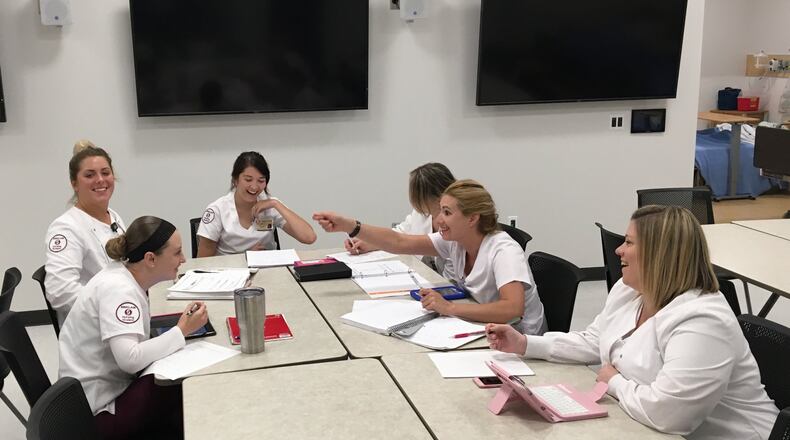RELATED: Career center turns away applicants due to space
“This is really about the designation of your community as a talent hub,” Lasley said. “They think you have the know-how, the capacity, the infrastructure in place to really enhance your (education) attainment numbers for all student populations.”
Both Lasley and Lumina officials said that is important at a time when cities are competing to build more educated workforces so they can capitalize on technological and economic changes, rather than get left behind. Lumina’s aim is for more Americans to earn degrees and other workforce credentials.
“The vast majority of new jobs created in the recovery from the Great Recession went to people with a post-secondary credential,” said Lumina Foundation CEO Jamie Merisotis. “In other words, for people with a high school diploma or less, in many ways, the recession never really ended.”
RELATED: Degree-holders earn more; some cite debt risks
Lasley said earning the Talent Hub designation will open more doors for Dayton and Montgomery County, both in leveraging investment and “intellectual assets.” He said one major national foundation has already reached out.
The Miami Valley has been recognized in recent years for strong collaboration, with local school districts and Learn to Earn working with Sinclair, Wright State and UD to increase the number of students earning college degrees or industry credentials. The state of Ohio recently got on board, adopting a goal to have 65 percent of working-age residents hold a degree or valuable workforce credential by 2025.
RELATED: School leaders aim to close achievement gaps
Lasley said there are more than a half-dozen areas of focus in the local plan.
** Increasing the number of high school students using Ohio’s College Credit Plus system to earn free credits, especially in high-poverty communities.
** Getting more students to fill out the Free Application for Federal Student Aid (FAFSA) so they understand that college may be financially attainable.
** Having colleges expand summer learning and “bridge” programs to connect students with resources so they make successful transitions after high school.
RELATED: Ohio ranks 45th of 50 states in college affordability
Lasley said the grant money will be used heavily at Sinclair Community College, on academic advising and other resources, in part to get more students into credit-bearing courses rather than “developmental education” classes.
Learn to Earn Dayton officials have expressed some frustration in the past year that academic results for minorities and low-income students have not turned around faster locally. Lumina senior vice president Danette Howard said this is a long, slow process, but communities that have had success have had coordinated efforts and “unwavering commitment” from leadership.
“(Dayton’s issues) may be a microcosm of what’s happening all over the country,” said Lumina strategy officer Haley Glover. “It can be very frustrating when you want to improve people’s lives immediately, but you move at the pace of education, which does take multiple years to see the fruits of your labor.”
SURVEY: 1 in 4 would dispose of dead body if it meant no more debt
About the Author

